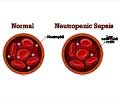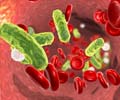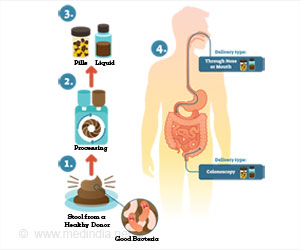The new and rapid culture-free sepsis test identifies pathogens and determines antimicrobial susceptibility in just 13 hours, speeding up sepsis treatment.

Blood culture-free ultra-rapid antimicrobial susceptibility testing
Go to source. Researchers from Seoul National University and the diagnostics firm QuantaMatrix achieved pathogen identification and susceptibility testing in about 13 hours using a synthetic peptide to extract bacterial pathogens from whole blood.
‘Newly developed culture-free #sepsis test cuts diagnostic times by up to 60 hours, potentially revolutionizing #patientcare. ’





Sepsis: Facts & Figures
Sepsis is a life-threatening condition resulting from the body's response to an infection, which can lead to widespread inflammation, organ failure, and death. Sepsis affects approximately 49 million people worldwide each year, according to the Global Sepsis Alliance. In the United States, sepsis affects around 1.7 million adults annually and is a leading cause of hospitalizations.Sepsis has a high mortality rate, with about 20-30% of patients dying from severe sepsis or septic shock. Common symptoms include fever, chills, rapid heartbeat, rapid breathing, confusion, and extreme pain or discomfort.
Lead author Tae Hyun Kim explained that QuantaMatrix, a spinout from Seoul National University, plans to license the ultrarapid antimicrobial susceptibility testing (URAST) method and develop an automated instrument for integrated pathogen detection, identification, and susceptibility profiling.
The URAST system is expected to revolutionize bacteremia diagnostics by providing phenotypic drug susceptibility results on the same day as blood collection. This advancement could guide clinicians towards timely, effective treatment, helping to reduce antimicrobial resistance and extend the efficacy of existing antibiotics.
The authors used magnetic nanoparticles coated with synthetic beta-2-glycoprotein 1 peptides to isolate bacterial pathogens from blood samples, finding this method had the highest binding affinity compared to other substances. They identified the bacteria using a multiplex assay with DNA probes on shape-encoded microdisks, achieving results within three hours. Additionally, they expedited antimicrobial susceptibility testing by culturing bacteria in a purified medium, enabling results in under eight hours for rapidly dividing species like Escherichia coli.
Advertisement
QuantaMatrix aims to expand the test's target range to cover a broader spectrum of pathogens, including additional bacterial species and fungi, further enhancing its clinical utility.
Advertisement
- Blood culture-free ultra-rapid antimicrobial susceptibility testing - (https://www.nature.com/articles/s41586-024-07725-1)
Source-Medindia












